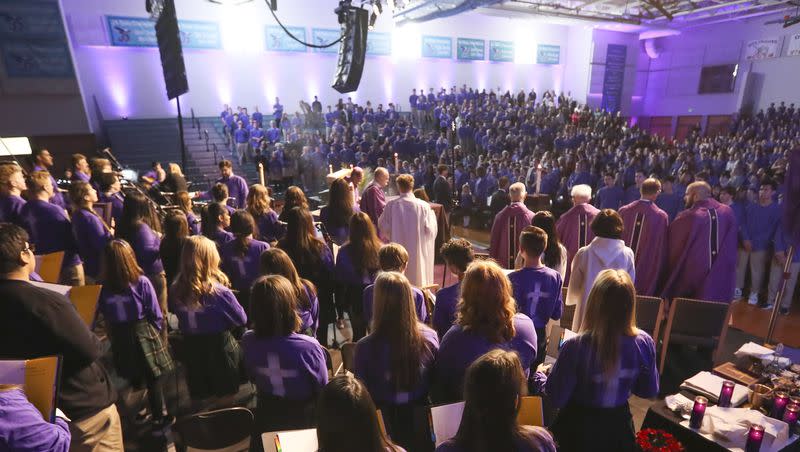Gen Z is skeptical of religious institutions, but supports people of faith, survey shows

A new survey on religious freedom highlights Gen Z’s complex views on religion and people of faith.
Researchers found that members of this generation are more accepting than other Americans of many kinds of religious expression but less supportive of faith-based institutions.
They’re more interested in protecting individual people of faith than organized religion as a whole, according to the survey, which was released Tuesday by the Becket Fund for Religious Liberty.
Although the survey didn’t dig into the roots of Gen Z’s views, researchers noted that many of their responses likely stem from an interest in supporting “populations that have not previously had a place on the stage” and a discomfort with traditional religious practices and ideas.
“Gen Z’s generational perspective may be informed by a desire to give voice to the voiceless,” the survey report said.
Happy Religious Freedom Day! To celebrate, Becket has released the fifth edition of the Religious Freedom Index, the nation’s only annual poll that tracks American opinion on religious freedom.
The 2023 Index marked the highest overall score in the Index’s history, showing that… pic.twitter.com/XtNZtEQMOY— BECKET (@BECKETlaw) January 16, 2024
Who is Gen Z?
Gen Z is the generation of Americans born between 1997 and 2012, according to Pew Research Center.
The oldest members of this generation are 27, while the youngest are 12.
Some notable traits associated with this group of young Americans are their exposure to and embrace of racial and ethnic diversity, their intense relationship with technology and their relative lack of formal religious faith.
More than one-third (34%) of members of Gen Z identify as religiously unaffiliated, compared to 29% of millennials, 25% of Gen Xers and 18% of Baby Boomers, according to the Survey Center on American Life.
The same report said just 40% of members of Gen Z attended religious services with their families while they were growing up.
Related
Gen Z and religious freedom
Gen Z’s relative lack of exposure to organized religion may help explain some of Becket’s findings.
The new survey showed that younger Americans are more skeptical than others of religious institutions, but supportive of individual spirituality and of members of minority faith groups, in general.
For example, members of Gen Z are relatively unsupportive of allowing religious organizations to make employment and leadership decisions based on faith.
But many young people do believe employers should offer religious accommodations to their employees and that workers should be free to wear religious clothing to their jobs.
They’re more supportive of these latter two practices than any other generation, Becket found.
Relatedly, members of Gen Z are more likely to say that people of faith are part of the solution to the nation’s problems than they are to say that religion is part of the solution.
Young people seem to trust individual believers “to have good moral instincts” even if they don’t trust the houses of worship they attend, researchers noted.
But Gen Z does seem to have limits when it comes to supporting individual expressions of faith.
For example, just 36% of these young Americans “completely accept and support” an individual’s right to preach the doctrine of their faith to others, even though 48% are OK with people “expressing” or “sharing” their faith.
“This (gap) could be because the generation associates preaching with traditional ways of thinking,” Becket’s report said.
In their concluding thoughts about the state of religious freedom in the U.S. today, researchers wrote that Gen Z’s support for individual people of faith is laudable, but that young people need to be taught the value of legal protections for religious institutions.
“Gen Z ... could use an appreciation of how people of faith need legal protections that extend beyond words and clothing to actions and deeds,” the report said.

